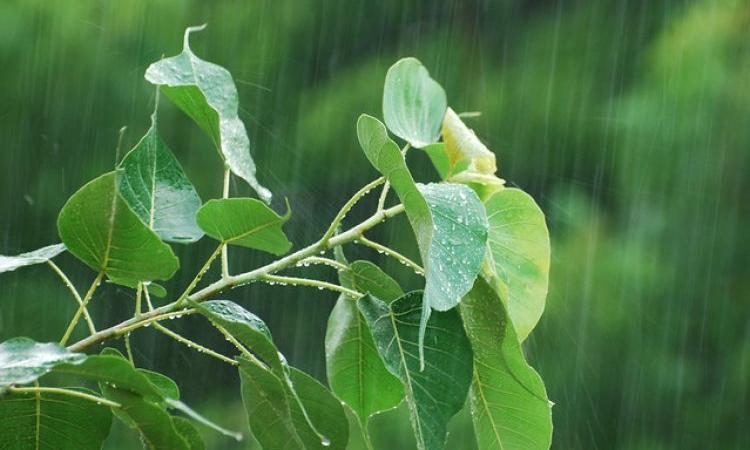
Monsoon’s withdrawal likely to begin around October 10: IMD
As per the India Meteorological Department (IMD), although the southwest monsoon officially ends on September 30th, the monsoon’s withdrawal is likely to begin only around October 10th - the most delayed withdrawal since 1961 (October 1) and 2007 (September 30). This year the monsoon made a late onset on June 8th with a deficiency of 33 percent but received 105, 115 and 152 percent of its long period average (LPA) in July, August and September, respectively. The MET Department says that the first and foremost condition for monsoon withdrawal is that rainfall should stop completely for about five days, there should be a significant reduction in moisture and anticyclone flow should be established - but none of this has happened yet. (Hindustan Times)
Torrential rains a new normal, thanks to climate change and uncontrolled development
Last week, torrential rains and flooding resulted in 110 deaths in just four days across the country, with Uttar Pradesh and Bihar being the worst hit. The rains generally recede by the end of September, but this year has been the wettest September in 102 years in India. Moreover, we are seeing a new monsoon trend which starts with severe drought, quickly followed by erratic and unpredictable rain. Climate change and the warming of the Arabian Sea are causing this new trend, coupled with disastrous development policies that allows destruction of forest cover, reckless construction over wetlands, flood plains and riverbeds, and concretisation in cities without proper drainage planning. Despite the implications of the new pattern on agriculture and the Indian economy, the government seems to remain unaffected. (Broadsheet)
Sea level rise expected to affect over 1.4 billion people globally by 2100: IPCC report
According to a recent report by the Intergovernmental Panel on Climate Change (IPCC), global warming could lead to a loss of over 60 percent of glaciers of the Hindu Kush Himalayas (HKH). Rising sea levels will pose a severe threat to cities across the world, including Mumbai, Kolkata, Surat and Chennai. Melting glaciers will also cause more extreme rainfall events and severe and frequent floods will increase in the mountainous and downstream areas of the Indus, Ganges and Brahmaputra river basins, in the HKH area. The report also warns that even if greenhouse gas (GHG) emissions are reduced and global warming is limited to 2 degrees Celsius, sea levels are expected to rise by over 30-60 centimetres globally. (India Today, Money Control)
Tap water in Delhi unsafe for drinking
According to a preliminary investigation of tap water samples from 11 areas in Delhi, it has been revealed that the random samples collected from the tap water supplied by the Delhi Jal Board (DJB) and the New Delhi Municipal Corporation (NDMC), are unsafe for drinking. Moreover, the samples did not meet Bureau of Indian Standard (BIS) norms and pH level, odour and acidity were much higher than prescribed norms. The samples have been sent for further investigation and the final report is expected to be released in a month. To address the issue, Union Food and Consumer Affairs Minister Ram Vilas Paswan has called a meeting tomorrow with senior officials from the Delhi Government, DJB, NDMC and the urban development ministry. (The Tribune)
Jakkur lake rejuvenation project exemplifies citizen and state participation
The Jalaposhan Trust, involved in the rejuvenation of the 16-acre, 200 year old Jakkur Lake in Bengaluru, has won accolades from the National Water Mission (NWM) for rejuvenating, conserving and preserving the lake. Even the Jal Shakti team appreciated the model for perfectly engaging citizen groups and the government as the custodians of the lake. In order to conserve the lake, the trust joined hands with the BBMP (Bruhat Bengaluru Mahanagara Palike), which is the custodian of the lake, under an MoU and all other stakeholders (elected representatives, BWSSB, KSPCB, Fisheries, BESCOM, the forest department, fishermen, grasscutters and local self-help groups), along with a local NGO, Satya Foundation. (The Times of India)
This is a roundup of important news published between September 24 - October 1, 2019. Also read policy matters this week.
/articles/monsoon-withdrawal-delayed-more-extreme-weather-events-new-trend